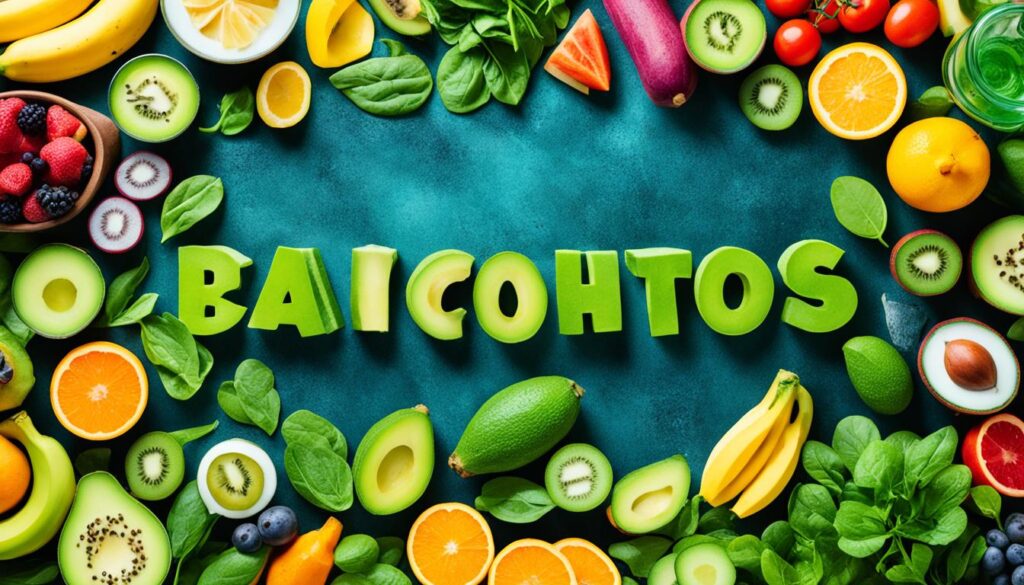The pursuit of health and wellness often leads individuals to explore the benefits of water fasting, a regimen that has garnered significant attention for its potential to unlock elevated energy levels and promote overall health. However, a critical aspect often overlooked in one’s fasting strategy is the significance of maintaining electrolyte balance. Electrolytes and Water Fasting go hand-in-hand; these charged minerals are indispensable for a multitude of physiological processes, ensuring that our bodies function optimally even in the absence of food.
During a water fast, the body undergoes a transformation that can lead to an electrolyte imbalance, causing unwanted side effects such as fatigue and muscle cramps, potentially stalling the benefits of water fasting. To circumvent these concerns, it is vital to identify and utilize proper electrolyte sources, such as high-quality supplements, without breaking the state of the fast. Utilizing products like Mayu Minerals Electrolytes Drops can enable individuals to maintain their electrolytic equilibrium while embracing the transformative journey of fasting.
Key Takeaways
- The integration of electrolytes into a water fasting regimen is crucial for sustaining health and energy levels.
- Electrolyte imbalance can disrupt the benefits of water fasting, emphasizing the importance of mindful intake strategies.
- Opting for acceptable electrolyte replenishment, such as Mayu Minerals Electrolytes Drops, supports the fasting process without compromising its effectiveness.
- An individualized approach should be adopted, taking into account personal health goals and activity levels when planning a fasting strategy.
- Consulting with a nutritionist or healthcare professional can offer personalized guidance to ensure safe and beneficial fasting.
Understanding the Role of Electrolytes in Water Fasting
When diving into the realm of water fasting, awareness of the importance of electrolytes plays a critical role in maintaining one’s health and vitality. As fasting strips away the regular intake of food, the body relies heavily on its electrolyte reserves to sustain essential functions. Understanding the delicate balance of electrolytes and hydration during this period is key to optimizing the benefits of water fasting, particularly when considering the electrolyte functions in fasting. Below we explore electrolytes’ numerous roles and the potential risks of disregarding their balance during a fasting regimen.
Defining Electrolytes and Their Functions
Electrolytes, namely sodium, potassium, and calcium, are minerals instrumental for various physiological processes such as heart rhythm, muscle contraction, and nerve signaling. They are also paramount in regulating the body’s hydration levels and acid-base balance, which is especially pertinent when food intake is minimal or non-existent, as in the case of water fasting.
Why Electrolytes Are Critical During a Water Fast
In the absence of regular meals, the hydration and electrolyte levels can swiftly become compromised. Ensuring a proper balance of electrolytes is therefore imperative during a water fast to support bodily functions that can otherwise be impaired in this state. Supplementing with high-quality electrolyte sources, without the addition of sugars that could interrupt the fast, is crucial to maintaining the benefits of this discipline.
The Risks of Electrolyte Imbalance
An imbalance can lead to dehydration, muscular weakness, headaches, and even heart arrhythmias — all unwanted side effects that not only diminish the efficacy of the fast but also pose health risks. These electrolyte-related issues underscore why balancing one’s intake can mean the difference between a successful fast and one that detrimentally impacts well-being.
| Electrolyte | Function | Common Sources |
|---|---|---|
| Sodium | Regulates fluids, nerve and muscle function | Himalayan pink salt, bone broth, supplements |
| Potassium | Crucial for heart function, muscle contraction | Spinach, bananas, oranges, supplements |
| Magnesium | Supports muscle and nerve function, energy production | Nuts, seeds, yogurt, leafy greens, supplements |
| Calcium | Vital for bone health, heart and muscle function | Dairy, fortified plant milks, leafy greens |
This table reflects the indispensable role specific electrolytes play in overall health. For those practicing fasting, particularly water fasts that eliminate food intake, leveraging these sources of electrolytes can ensure a safer and more effective fasting experience.
Combatting Electrolyte Deficiency During Fasts
Confronting the challenge of electrolytes deficiency is essential during fasting, as it not only ensures general health but also contributes to the effectiveness of the fasting process itself. Recognizing early symptoms such as muscle cramps, fatigue, or dizziness, often indicative of an electrolyte imbalance, is the first step in addressing this issue. Knowing how to replenish electrolytes efficiently is critical, especially for individuals engaged in extended periods of fasting or those who maintain a vigorous level of physical activity.
The importance of maintaining a consistent intake of the best electrolyte sources cannot be understated. Whether obtained from natural food sources or high-quality supplements, electrolytes play a vital role in sustaining bodily function during fasting. Natural sources such as bone broth and Himalayan pink salt, along with specialized supplements like Mayu Electrolyte Drops, provide an efficacious route for replenishing essential minerals without disrupting the fasting state.
| Sign of Deficiency | Electrolyte to Replenish | Recommended Source |
|---|---|---|
| Muscle Cramps | Magnesium, Potassium | Nuts, Seeds, Leafy Greens |
| Fatigue | Sodium, Calcium | Bone Broth, Cheese |
| Dizziness | Sodium | Himalayan Pink Salt, Broth |
Those experiencing prolonged fasting or higher levels of exertion may witness an increased demand for electrolytes. Here, close management of electrolyte intake becomes paramount in avoiding imbalances, which could otherwise thwart health improvements and fasting milestones. Ultimately, the key to successful fasting lies not just in the abstention from food, but in the strategic support of the body’s many needs for essential minerals.
Maintaining Hydration and Electrolyte Equilibrium
Within the fasting community, maintaining electrolyte balance and sustaining hydration while fasting are topics of increasing importance. As practitioners abstain from food during fasting, understanding the dynamics of electrolytes for fasting becomes essential for health and performance. Fasting invites a state of ketosis, leading to decreased insulin levels, which in turn causes the body to excrete more sodium—a key electrolyte.
Electrolyte balance in fasting is not only crucial for avoiding the unwelcome symptoms often associated with “keto flu,” such as headaches and fatigue but also for the overall success and safety of the fasting regimen. Proper management of this balance supports sustained energy levels and muscular function, making sustaining hydration while fasting a cornerstone of a successful fast.

Strategies such as sipping on specifically formulated drinks like MAGNAK Endurance mix throughout the day help maintain electrolyte levels. These beverages are crafted to include a balanced blend of sodium, potassium, and magnesium, critical electrolytes that support a myriad of body functions during fasting. Another such alternative is HuMOLYTE, tailored for those seeking a fasting-compatible, sugar-free supplement to prevent the depletion of essential minerals.
Integrating this intentional intake of electrolytes with adequate water consumption forms the backbone of maintaining the delicate electrolyte and hydration balance necessary for fasting. Below is a guide on the optimal proportions of key electrolytes and recommended sources to support fasting efforts.
| Electrolyte | Optimal Proportion | Recommended Sources During Fasting |
|---|---|---|
| Sodium | 250-450 mg per serving | MAGNAK Endurance mix, HuMOLYTE |
| Potassium | 200-300 mg per serving | HuMOLYTE, MAGNAK Endurance mix |
| Magnesium | 70-120 mg per serving | MAGNAK Endurance mix, leafy greens (pre/post fasting) |
By closely adhering to these guidelines, individuals can efficiently manage their electrolyte levels to enhance their fasting journey. It demonstrates a proactive approach in combatting potential imbalances, thereby enabling fasters to realize the myriad benefits tied to this time-honored practice without compromising their well-being.
Water Fasting and Optimal Health Outcomes
Water fasting, an ancient practice receiving modern acclaim, has shown promise in its ability to promote cardiometabolic health, boost autophagy, and sustain longevity. The water fasting benefits endorsed by contemporary research are far-reaching, proposing an effective method to ameliorate blood sugar levels and, by extension, offering potential relief to those grappling with prediabetes and type 2 diabetes.
The fasting state naturally improves insulin sensitivity, allowing the body to better regulate blood sugar. Experts in metabolic health suggest that this increased sensitivity could translate to palpable health benefits, particularly for those dealing with insulin-resistant conditions. Moreover, the initiation of autophagy – the body’s inherent cellular cleansing process – during a fast, acts as a biological reset button, potentially slowing the aging process and providing a barrier against an array of neurodegenerative disorders, emblematic of its profound impact on wellbeing.

However, the path to these optimal health outcomes is strewn with potential obstacles, as fasting – especially extended periods thereof – can precipitate a decline in essential nutrients. This aspect underscores the emphasis on maintaining a vigilant approach toward electrolyte management during water fasting to prevent deleterious effects such as low blood sugar and abrupt blood pressure fluctuations, symptoms that could undermine the integrity of the practice. Caution and preparedness are therefore indispensable allies in the pursuit of fasting-induced health enhancement.
Medical professionals and fasting aficionados alike advocate for a consultative strategy prior to embarking on extended water fasts. It’s a convergence of wisdom and precaution that ensures the safety and success of individuals keen on exploring the transformative effects of water fasting. By intently balancing the scales between fasting and fulfilling the body’s electrolytic and hydrational needs, individuals can unlock the treasures of health that this time-honored discipline offers, encompassing a range of benefits from heightened metabolic function to improved long-term vitality.
For those interested in exploring the depths of water fasting, it is essential to arm oneself with knowledge, adapt strategies for safety, and seek out professional guidance to navigate this powerful tool for health. Such preparation not only ensures a smooth fasting experience but also paves the way towards realizing the full potential of the body’s restorative powers.
Conclusion
In encapsulating the journey of water fasting, our concluding insight on electrolytes and fasting reaffirms the pivotal nature of these minerals. Electrolytes, serving as the unsung heroes during fasting periods, ensure that the body continues to function harmoniously, thereby enhancing overall health and vitality. Ignoring their integral role in fasting can lead to multiple adverse effects, hindering the purported benefits this practice promises. As such, a deliberate approach to integrating electrolytes into one’s fasting regimen emerges as a non-negotiable facet of a successful health strategy.
Summarizing the Importance of Electrolytes in Water Fasting
The narrative around water fasting rightly champions weight loss and autophagy, yet a narrative equally deserving of the limelight is the importance of maintaining electrolyte balance. Without this balance, one risks nullifying the very advantages sought through fasting. The evidence is clear: electrolytes are not merely a supplementary aspect but rather an essential player in facilitating the body’s enduring resilience and performance, particularly in the absence of food.
Final Recommendations for Safe and Effective Fasting
As we stitch together our recommendations for fasting safety, listening to one’s body cannot be overemphasized. Early cues of imbalance must be heeded. Consistency in electrolyte intake from reputable brands like Mayu Electrolyte Drops or MAGNAK Endurance mix, especially for rigorous endeavors or prolonged fasts, provides a shield against potential deficiencies. For those embarking on this path, seeking expert advice stands as a beacon of prudence that can illuminate the journey towards a healthy fasting experience.
Continued Research and Learning on Fasting Hydration
The dialogue on fasting hydration is ever-evolving, and ongoing education in this domain primes individuals for informed decision-making. As research continues to unravel new facets of how fasting affects the body, staying abreast with these discoveries ensures a profound comprehension and appreciation of the nuances involved in fasting. Embracing such knowledge ultimately cultivates a community well-versed in achieving equilibrium between the abstinence of a fast and the nourishment vital to thriving health.




